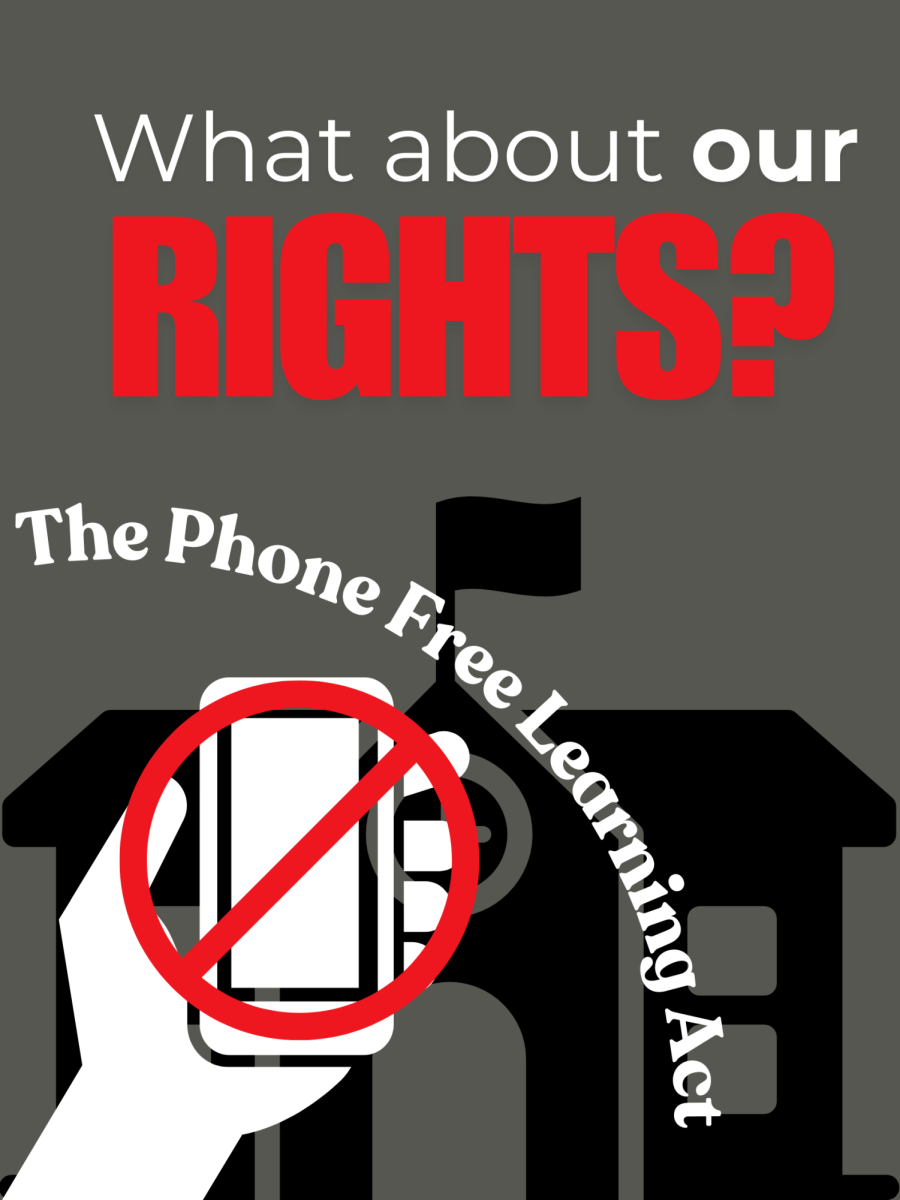In recent years, constant smartphone use has had increasingly dangerous effects on mental health, workplace efficiency, and social relationships. The consequences of a technology-dependent culture have raised alarms among health professionals and productivity experts, from decreased attention spans and rising stress levels to challenges in maintaining work-life balance. Recognizing these issues, Idaho Gov. Brad Little proposed the Phone Free Learning Act on Oct. 31. It’s goal is to curb excessive smartphone use, especially in school environments where focus and human connection are critical.
Although this act could improve the productivity of some students within the state of Idaho, it is only guaranteed to benefit some students. For other students, a complete phone ban during school hours could prove problematic, if not harmful. The assumption that all students are equally distracted by smartphones during class overlooks the varied ways technology functions in their lives. There are several compelling reasons why the Phone Free Learning Act could create difficulties for students who need to stay connected for crucial personal, academic, or family-related reasons.
A significant concern for many students is their role as caregivers or supporters for family members, including younger siblings, elderly relatives, or even those in hospice care. Students who face these hardships and struggle with keeping school and home life balanced should have the right to their personal communication devices, especially since it can be seen as a necessity. A blanket phone ban could leave them feeling cut off, anxious, or powerless, unable to receive critical updates or support during the school day. Research done by the Pew Research Center shows that 98% of parents/guardians agreed with the statement that “A major reason my child has a cell phone is so we can be in touch no matter where he/she is.” and 94% of parents and 93% of those ages 12-17 agreed with the statement: “I feel safer because I can always use my cell phone to get help.” Banning cell phones in an environment where threats and shootings can occur anytime, a cell phone is a necessity and also proves to just comfort students.
Another group of students who might be affected by the Phone Free Learning Act are those who finish their work early during class. Many students use their smartphones to use this time in a non-disruptive way. They communicate with friends and family, review materials, or even use online learning platforms that support their in-class assignments. For students who are often ahead of the curriculum, or who manage their time well, restricting their phone use could be unnecessarily ridiculous, reducing their ability to use their spare time productively. Rather than disrupting the class or engaging in distracting behaviors, these students could be using their phones in ways that support their academic growth.
Other students’ phones serve as a lifeline to deal with home issues—whether coordinating schedules with working parents, receiving messages from family members, or staying in touch with friends for emotional support. Students from challenging or unstable home environments may need phone access to check in with siblings, update family members on plans, or even communicate with social services. These students may feel isolated or vulnerable if they cannot use their phones to check in when necessary. While dealing with these issues, a Phone Free Learning Act can project anxiety onto the students, increasing the popular hatred for school. A quote from Debbie Critchfield during a BYU interview states, “Thinking about how to implement policies that support learning but also protect a student, so to speak, so that learning can take place is important.” Critchfield states how the act will support learning and protect students, but how will the students feel when they are cut off from communication access with their family and emergency services? What would they do in case of a classroom emergency?
A most seen concern in this Phone Free Act is that the students’ individual rights are being violated and the whole ban is an unnecessary solution to only benefit a few
In an era where digital connections are weaved into nearly every aspect of daily life, such as schooling, communication, and even healthcare, removing smartphone access can feel like an uncalled-for intrusion on freedom. Some students may think that the law fails to consider the many ways in which smartphones can be used responsibly and constructively. Furthermore, the blanket ban could be perceived as a one-size-fits-all solution to a problem that isn’t uniform across all students, leading to unfairness.
Although the Phone Free Learning Act is all well-intentioned, the students’ mental health and attitudes could be crucially affected and may create a sense of doom, adding to the population of students who already dislike their school environment.
Categories:
The phone-free learning act is not a one-size-fits-all solution
0
More to Discover












